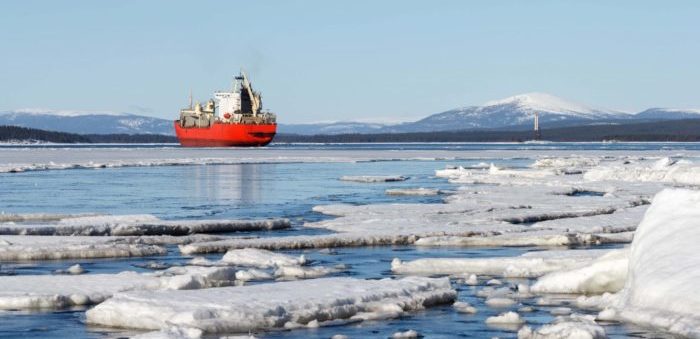The US Coast Guard summarizes the multinational exercises undertaken under the auspices of the Arctic Council for oil pollution preparedness and response in the Arctic.
Increased commercial maritime activity in the Arctic region requires enhanced spill response planning and preparedness in order to mitigate the challenges of oil spill response in the Arctic. Representatives from all eight Arctic member states work within various forums and working groups to mitigate risks and ensure safe, secure and environmentally responsible activities in the Arctic.
One of these groups, the Arctic Council’s Working Group on Emergency Prevention, Preparedness, and Response (EPPR), specifically addresses the areas of marine environmental response and search and rescue for the Arctic marine environment.
The EPPR focuses much of its attention on exercising the Agreement on Cooperation on Marine Oil Pollution Preparedness and Response in the Arctic (MOSPA Agreement). The objective of the MOSPA Agreement is to strengthen cooperation, coordination and mutual assistance among the parties on oil pollution preparedness and response in the Arctic to protect the marine environment from pollution by oil. Efforts include the development of operational guidelines that designate notification and request (and offer) for assistance protocols in the event of an incident requiring multilateral coordination.
The EPPR works to exercise and maintain this MOSPA Agreement by ensuring all eight Arctic nations remain engaged in multi-lateral discussions, which includes an annual exercise process.
The first exercise under the MOSPA Agreement was hosted by Canada in 2014, consisting of a communications exercise that simulated the notification of parties and the request for and receipt of offers of assistance.
In September 2015, the U.S. hosted the next phase of the EPPR MOSPA exercise cycle, a workshop held at U.S. Coast Guard Headquarters. The emphasis of this workshop focused on updates to the operational guidelines as well as the identification of the highest risk Arctic spill scenarios that could be utilized for the 2016 EPPR MOSPA table-top exercise.
From May 9 to June 13, 2016, the EPPR conducted a three-stage table-top exercise led by representatives from the U.S. Coast Guard’s Office of Marine Environmental Response. This exercise engaged EPPR member state representatives whose countries may be impacted by an oil spill that is large enough to require the implementation of the multilateral MOSPA Agreement and associated operational guidelines.
On May 9, the exercise began with a standard notification with international requests for assistance, followed by each state analyzing their internal protocols for offering assistance from May 11 to 20, 2016. Finally, nearly 40 participants including representatives from each EPPR member state, as well as permanent participants and observers, met on June 13, 2016, in Montreal to discuss the results of the notification and request for assistance exercise stages as well as make recommendations on enhancing this process.
As a result of this exercise, an EPPR Marine Environmental Response Experts Group will take the recommendations for action and move to improve the overall EPPR MOSPA Request for Assistance process.
The Exercise Design Team lead, Coast Guard Lt. Cmdr. Wes James noted that,
“This exercise provided great insight into the partnership that is the EPPR. We worked together to build an exercise process that not only included the United States as the team lead, but also utilized a Norwegian scenario, hosted by Canada in Montreal, and was evaluated by representatives from Canada and Finland. By doing so, we created a better process that will continue to enhance this multi-lateral forum whose ultimate goal is to ensure the protection of the Arctic marine environment.”
Source: USCG Blog































































